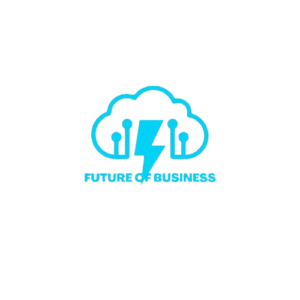Understanding What a High Ticket Closer Does
A high ticket closer specializes in selling premium products or services, often priced from hundreds to thousands of dollars. Unlike traditional salespeople, these professionals work directly with qualified leads who are already interested but need that final nudge to make a purchase. Their role is to connect emotionally with clients, uncover their pain points, and communicate value in a way that justifies the price. High ticket closers can work in diverse industries, including business coaching, real estate, SaaS, luxury goods, and online education. What makes this career particularly attractive is its earning potential—commissions on a single sale can often exceed what a typical retail salesperson earns in a week. These closers typically work remotely, making it an excellent choice for those seeking flexible, performance-based opportunities. Ultimately, the position requires skill, confidence, and empathy more than formal experience or education.
Why High Ticket Closer Jobs Are in Demand
The demand for high ticket closers has skyrocketed with the rise of digital entrepreneurship and online high-value offers. Businesses today recognize that having skilled closers dramatically increases conversion rates, especially for premium programs and services. Coaches, consultants, and agencies frequently rely on closers to help convert leads into paying clients, as these transactions often involve emotional and financial commitment. The shift toward remote sales has also made it possible for people worldwide to enter the industry without traditional corporate constraints. This demand is driven by both the growth of online marketplaces and the need for personalized sales interactions. As automation increases, human connection remains the key differentiator—something high ticket closers excel at providing. The field continues to expand, opening doors for individuals eager to start a rewarding career, even without prior sales background.
Breaking into High Ticket Sales Without Prior Experience
Many people assume you need years of sales experience to enter high ticket closing, but that’s far from the truth. What matters most is mindset, communication, and the ability to build rapport quickly. High ticket closer jobs with no experience are attainable if you focus on learning and consistent self-improvement. Start by studying human behavior, persuasion, and emotional intelligence—these are the foundations of any successful sales conversation. Numerous online courses, mentorships, and YouTube channels offer free or affordable resources to get started. Employers and business owners value passion, trainability, and confidence more than a polished résumé. By approaching every opportunity with curiosity and persistence, you can quickly develop the credibility needed to earn your first closing opportunity.
Key beginner steps include:
- Enroll in online programs focused on high ticket closing fundamentals
- Practice role-playing calls with friends or peers
- Watch real-world closing examples to understand tone and pacing
- Follow industry leaders and learn their selling frameworks
- Build a small portfolio or testimonial base, even through unpaid practice
By taking these steps, you’ll create a foundation that will help you confidently approach clients and recruiters, even without prior sales experience.
Essential Skills to Develop for High Ticket Closing
To succeed in this field, you need a strong mix of communication, strategy, and empathy. Persuasion isn’t about forcing someone to buy—it’s about connecting with their needs and showing how your offer provides the right solution. The best closers understand that confidence, authenticity, and timing drive conversions more than fancy scripts. You’ll also need to master objection handling, since most buyers hesitate before making high-value purchases. Understanding their concerns and addressing them calmly builds trust and moves them toward commitment. Storytelling is another critical tool; it turns ordinary product features into emotional narratives that inspire action. Lastly, learning buyer psychology helps you identify what truly motivates your prospects to purchase. Developing these skills takes practice, but consistency and patience lead to mastery.
How to Get Your First High Ticket Closer Job
Landing your first opportunity can seem challenging, but with the right strategy, it’s achievable. Begin by searching online platforms like LinkedIn, Upwork, and Facebook groups dedicated to sales and marketing. Many business coaches and entrepreneurs look for entry-level closers who are eager to learn. Build your online presence by showcasing your communication skills through posts, videos, or thoughtful comments. Craft a professional résumé that emphasizes transferable skills such as negotiation, active listening, and problem-solving. Instead of focusing on what you lack, highlight your enthusiasm and willingness to grow. Reaching out to potential employers directly or attending online sales networking events can also help you stand out. Remember that persistence is key—your first “yes” often comes after multiple rejections, but every interaction brings you closer to your goal.
Practical Steps to Stand Out in the Competitive Market
As more people enter the world of high ticket sales, it’s crucial to differentiate yourself. Building a personal brand is one of the most effective ways to do this. Use LinkedIn to share your learning journey, post about your insights, and connect with professionals already in the field. Showcase your ability to communicate clearly and with confidence during interviews or mock calls. Participating in online communities like sales forums or social media groups allows you to learn from others while gaining visibility. You can also take advantage of sales boot camps or workshops that offer certifications and practical exercises. Create short video introductions to share with potential clients—this gives them a sense of your tone, professionalism, and enthusiasm. Demonstrating value through action, not just words, is what will set you apart from other beginners.
Common Mistakes New Closers Should Avoid
Every beginner faces challenges, but awareness can help you avoid common pitfalls. One of the biggest mistakes is over-relying on sales scripts rather than focusing on genuine human connection. Clients can sense when a conversation feels robotic or forced. Another issue is overpromising—making unrealistic claims just to close a deal can damage your reputation long-term. Many new closers also forget to follow up after initial contact, losing valuable opportunities. It’s also essential to stay adaptable, as every client and product requires a slightly different approach. Neglecting continuous learning can cause your progress to stall in such a competitive market. Lastly, be patient; results don’t come overnight, and consistency matters more than perfection. By keeping these mistakes in check, you’ll build a sustainable career and earn trust within the industry.
Real-World Tools and Resources for Aspiring High Ticket Closers
Having the right tools can significantly enhance your productivity and professionalism. Customer Relationship Management (CRM) systems like HubSpot or Pipedrive help track conversations and follow-ups. Communication platforms such as Zoom and Slack allow seamless interaction with clients and teams. You can also access numerous online training programs designed for beginners in high ticket closing, such as those offered by industry experts like Dan Lok or Cole Gordon. Books like “How to Win Friends and Influence People” and “The Psychology of Selling” remain timeless resources for developing persuasion skills. Podcasts and webinars can also help you stay inspired and up to date with sales strategies. Joining communities or mentorship programs gives you the chance to learn from experienced closers who’ve walked the path before. Utilizing these resources helps you stay organized, skilled, and competitive.
Growth Paths and Long-Term Career Opportunities
High ticket closing isn’t just a job—it’s a gateway to broader professional growth. Once you’ve gained experience, you can move into leadership roles such as sales team manager, sales trainer, or even business development director. Many closers eventually start their own agencies, representing multiple brands or creating their own products to sell. Others transition into consulting, coaching, or affiliate marketing, leveraging their expertise for new income streams. The flexibility of remote work also allows you to collaborate with international clients, expanding your network and earning potential. As you build your reputation, referrals and repeat clients become common, providing steady income and professional freedom. The more you refine your skills and relationships, the more control you gain over your career direction.
Frequently Asked Questions
1. Can someone really become a high ticket closer with no experience?
Yes, many people start from scratch and succeed by learning sales psychology, communication techniques, and practicing regularly.
2. What are the best companies or industries to start in?
Coaching, consulting, real estate, and digital marketing industries often have beginner-friendly opportunities.
3. How long does it take to get your first high ticket client?
It varies—some people secure clients within weeks, while others take a few months of networking and training.
4. Do you need certifications or sales degrees?
No formal degree is required, but certifications and training courses can enhance credibility and skills.
5. How do high ticket closers get paid — salary or commission only?
Most work on commission, earning a percentage of each sale, though some may receive a base pay.
6. What’s the most important soft skill to develop as a beginner?
Empathy and active listening are vital because they help build trust and uncover client needs.
7. Is remote work common in high ticket closing roles?
Yes, most high ticket closing positions are remote, offering flexibility and work-life balance.
Takeaway
High ticket closer jobs with no experience are entirely possible to attain if you combine determination, continuous learning, and emotional intelligence. The path may seem challenging at first, but with the right mindset and commitment, you can build a thriving career in one of the most lucrative fields in sales. Focus on building relationships, practicing authenticity, and refining your communication skills. Every call you take brings you closer to mastering the art of closing and achieving financial freedom on your own terms.











